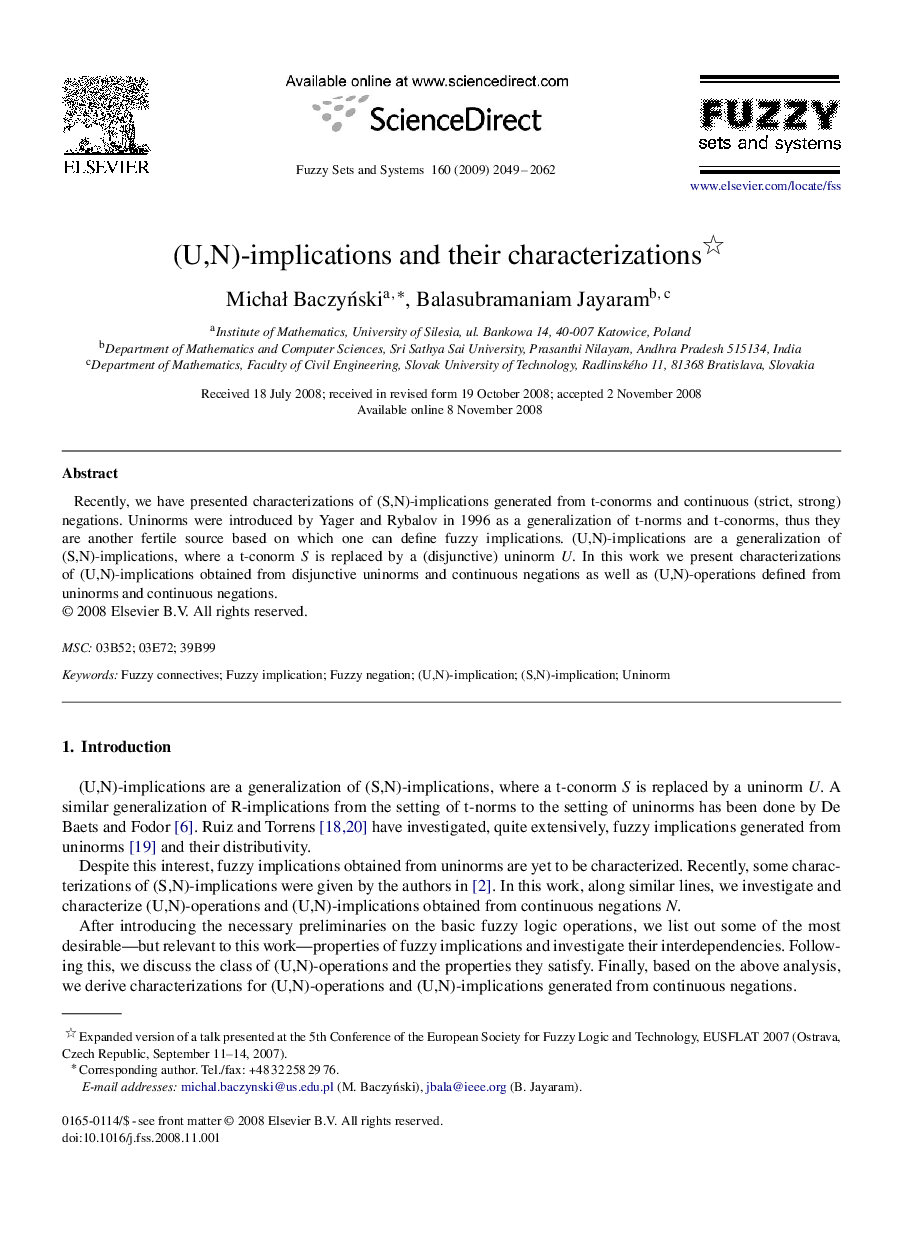| Article ID | Journal | Published Year | Pages | File Type |
|---|---|---|---|---|
| 390993 | Fuzzy Sets and Systems | 2009 | 14 Pages |
Abstract
Recently, we have presented characterizations of (S,N)-implications generated from t-conorms and continuous (strict, strong) negations. Uninorms were introduced by Yager and Rybalov in 1996 as a generalization of t-norms and t-conorms, thus they are another fertile source based on which one can define fuzzy implications. (U,N)-implications are a generalization of (S,N)-implications, where a t-conorm S is replaced by a (disjunctive) uninorm U. In this work we present characterizations of (U,N)-implications obtained from disjunctive uninorms and continuous negations as well as (U,N)-operations defined from uninorms and continuous negations.
Related Topics
Physical Sciences and Engineering
Computer Science
Artificial Intelligence
